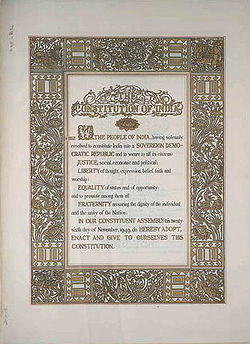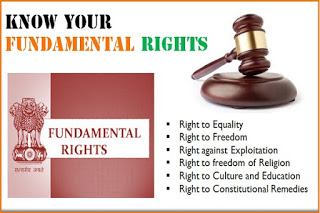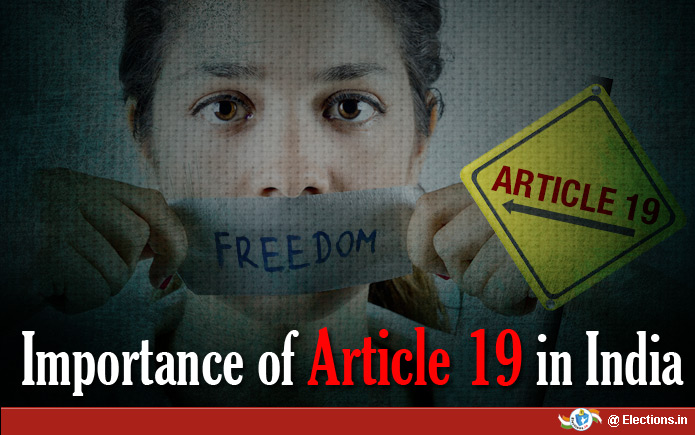 The Preamble or the “soul” of the Constitution. Image courtesy Wikipedia
The Preamble or the “soul” of the Constitution. Image courtesy Wikipedia
November 26 has been declared the Constitution Day of India. On this day, we are to recall the Constitution and its provisions. Equally important, we are to recall the vision with which the architect of the Constitution, Dr B R Ambedkar, drafted it.
Consider this vision, and its implications for the citizens of India:
- • When the Preamble was first enacted, it described the state as a “sovereign democratic republic“. In 1976 the 42nd Amendment changed this to read “sovereign socialist secular democratic republic”.
- • The Preamble outlines the non-negotiable principles which form the foundation of India: JUSTICE, social, economic and political; LIBERTY of thought, expression, belief, faith and worship; EQUALITY of status and of opportunity; and to promote among them all FRATERNITY, assuring the dignity of the individual and the unity and integrity of the Nation.
- • The word secular in the Preamble addresses the relationship between the government and the people, as determined according to constitution and law. Secularism is the basic structure of the Indian constitution. The Government respects all religions. It does not uplift or degrade any particular religion. There is no such thing as a state religion for India.
A day to remember and learn is fine. But we have to insist that every day is Constitution Day, because our citizens need their constitutional rights every day of their lives.
 Image courtesy http://www.legallyindia.com/Blogs/fundamental-rights-or-fundamentally-right
Image courtesy http://www.legallyindia.com/Blogs/fundamental-rights-or-fundamentally-right
The Constitution makes certain fundamental rights non-negotiable for every Indian citizen, regardless of class, caste, gender, community, region, language, ideology. These include, among other rights,
- • The right to life, and to live with human dignity: the rights to a clean environment, water, education, health, livelihood, shelter and basic amenities provided by the state.
This means we cannot have the state talk about “development” which excludes some of its citizens or interferes with their right to livelihood or basic amenities.
- • The right to equality: Equality before law, prohibition of discrimination on grounds of religion, race, caste, gender or place of birth, and equality of opportunity in matters of employment, abolition of untouchability and abolition of titles.
This means, for example, that limiting opportunities for Muslims, dalits and women is unconstitutional.
- • The right to freedom: Freedom of speech and expression, assembly, association or union or cooperatives, movement, residence, and right to practice any profession or occupation, right to life and liberty, right to education, protection in respect to conviction in offences and protection against arrest and detention in certain cases.
This means we can express our anguish about intolerance through our public interventions, art, literature, film and scholarship, without being called anti-national or hounded, intimidated or assassinated.
 Article 19, Freedom of speech and expression. Image courtesy http://www.elections.in/political-corner/article-19-of-indian-constitution/
Article 19, Freedom of speech and expression. Image courtesy http://www.elections.in/political-corner/article-19-of-indian-constitution/
- • The right against exploitation: This prohibits all forms of forced labour, child labour and traffic of human beings.
This means women (and men) cannot be bought and sold. It means children should be in school, not working as full time labour.
 Image courtesy https://blogs.state.gov/stories/2010/08/03/india-applying-holistic-approaches-eradicate-trafficking-persons
Image courtesy https://blogs.state.gov/stories/2010/08/03/india-applying-holistic-approaches-eradicate-trafficking-persons
 Image courtesy http://www.youthkiawaaz.com/2011/01/human-trafficking-in-india/
Image courtesy http://www.youthkiawaaz.com/2011/01/human-trafficking-in-india/
- • The right to freedom of religion: Freedom of conscience and free profession, practice, and propagation of religion, freedom to manage religious affairs, freedom from certain taxes and freedom from religious instructions in certain educational institutes.
This means the increasing communal violence or religiously-motivated incidents over the last few years are unconstitutional.
- • Cultural and Educational rights: the right of any section of citizens to conserve their culture, language or script, and right of minorities to establish and administer educational institutions of their choice.
This means people can eat what they want, (From Dadri lynching to storming of Kerala House) dress as they like, and any difference in ways of life, (How the Sangh Parivar systematically attacks the very idea of India) day-to-day cultural practice, and differing world-views do not make them “anti-national”.
Also see
http://www.slideshare.net/saifullacoorg/fundamental-rights-presentation




